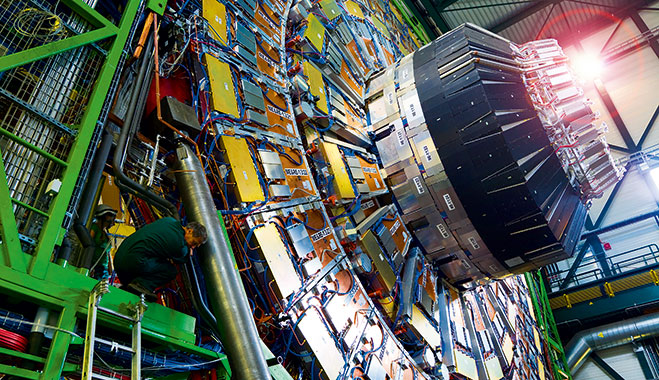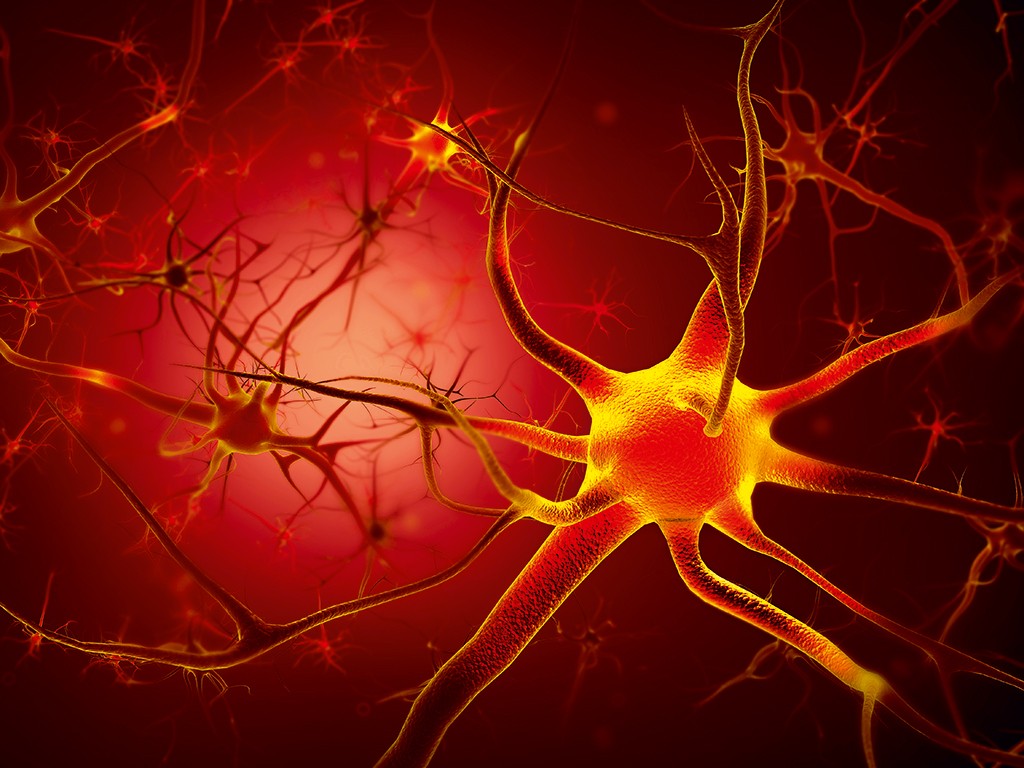Can’t we all just get along?
Why is it we can find the Higgs boson, but can’t fix the euro? Is international cooperation only possible when the end results mean nothing?

The world’s largest superconducting solenoid magnet at CERN’s Large Hadron Collider (LHC) particle accelerator in Geneva. The LHC is a multinational project, but its economic benefits are only secondary
One of the main principles behind mainstream, neoclassical economic theory is that individuals act to optimise their own utility. The definition of utility is somewhat hazy, but basically means whatever is pleasurable or useful. The net result of all this optimising behaviour is maximum utility for society as a whole. Much economic theory is therefore dedicated to tuning this utility machine.
Policymakers also try, quite sensibly, to steer the economy towards things that look like they should be useful. However, there are many examples where an activity’s sheer lack of utility in economic terms can make it, paradoxically, very productive.
Consider, for example, sports events, such as the Olympic Games. The Olympics is often held up as a stellar example of international cooperation, and is a great success by any standards (it has been going for long enough). But no one thinks the activities at its core – running, jumping and so on – are terribly important for society.
Of course, the stakes are high for the athletes, for local politicians, for advertisers, and for things like national pride. But now that we have cars, there isn’t much practical utility in running 100 metres faster than any other human. Economic benefits are a side effect, not central to the enterprise.
This lack of real world relevance is not a handicap – in fact, it is what makes cooperation between countries possible. Competition is intense, of course, but it is relatively safe and friendly, exactly because the real-world stakes are low. It’s a spectacle.
The hero’s quest
Another example of this inverse utility effect comes, perhaps surprisingly, from science. The scientific enterprise is often thought to be driven largely by utilitarian motives. But in many respects, science resembles a sport in its obsession with things that really aren’t that useful.
The scientific equivalent of the Olympics has been the search for the tiny particles that make up matter. As with the Olympics, the quest goes back to the ancient Greeks.
The venue for the modern version of this quest has switched a few times from one international laboratory to another. The latest record-beating particle – the famous Higgs boson – was recently spotted at the Large Hadron Collider (LHC) near Geneva.
At around £6bn, the LHC budget is similar to that of hosting a typical Olympics Games. The London Olympics involved about 10,000 athletes from over 200 countries; the LHC is the result of the work of around 10,000 scientists from over 100 countries. In the ancient games, champions were decorated with laurel leaves – today, our scientific heroes arenamed laureates.
The boson in question is important because it is evidence of the existence of a kind of energy field that permeates space and is responsible for giving other particles their mass. It is therefore a tremendously useful particle in itself.
Without it, atoms would never have had a chance to form, because everything would be whizzing around very fast. The Olympics would be redundant. However, knowing this is not, in strictly utilitarian terms, a very useful piece of information. It is not something you can take to the bank.
In fact, compared to areas like solid-state physics – which has given us the technology behind computer chips and much consumer electronics – particle physics has a low rate of direct commercial spin-offs.
…now that we have cars, there isn’t much practical utility in running 100 metres faster than any other human
Side effects
This makes sense from a complexity science perspective (as opposed to the reductionist paradigm that has long dominated science), since what counts is the emergent properties at a macro scale – rather than the components at the micro scale, which need not be directly related.
For example, the electron was discovered in the late 19th century using an early accelerator known as a cathode ray tube (later used in TVs). Electrons in the form of electrical current have certainly proved useful in the wiring-up of the planet and this is sometimes held up as an example of a useful application.
However, the discovery of the electron particle did not drive the progress of electrical engineering – rather it was the other way round. The cathode ray tube used to discover the electron was itself powered by electricity.
Accelerator research has led to advances in all kinds of useful things, from superconducting cables to tunnel construction. The most famous spin-off, which has had major economic implications, was the World Wide Web – its HTML language was invented by Tim Berners-Lee while he was at CERN (the organisation that now runs the LHC). But these were side effects, related to the technology used in laboratories rather than the actual physics.
With the boson, the main thing at stake is the shared joy of filling another gap in the puzzle of our understanding of nature. If its discovery had real commercial or military applications, one can bet cooperation would be more difficult.
Peace when it doesn’t matter
There is, of course, Olympic-scale competition between different teams over things like who will be awarded a Nobel Prize, but it is friendly competition around shared goals. The utility-lacking nature of particle physics has been key to its success.
Of course, most scientists probably don’t see it quite this way. They are used to festooning their grant request forms with references to the likely benefits to society of their work. Few would agree with the mathematician GH Hardy, who famously toasted: “Here’s to pure mathematics, may it never find an application.”
And the lack of direct applications does not, of course, mean particle physics is of no value, any more than art or sports or pure mathematics is without value. It is just the sort of value that is not easily captured by economic metrics.
It is a shame the spirit and energy seen in particle physics or sports seems to elude us for things like world peace, conquering climate change or even fixing the euro. Unlike the quest for a particle, these require action and the upsetting of stakeholders. But at least we can draw inspiration from science and sports, while envying their relative freedom from the restraints of utility.













